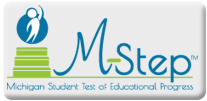 When I began blogging with my 5th graders a few years ago, it was only to participate in the Two Writing Teachers “slice of life” challenge, which encourages writers to describe real experiences. My goal was for my students to put their best writing forward and to make some connections
When I began blogging with my 5th graders a few years ago, it was only to participate in the Two Writing Teachers “slice of life” challenge, which encourages writers to describe real experiences. My goal was for my students to put their best writing forward and to make some connections
with an outside audience.
I began at the beginning, so to speak. We started blogging on the first day of school last year and continued all year long. I used the blog as a portfolio of writing progress, and I was able to give blogging homework, which enabled me to teach more responsively and to easily create strategy groups as needed.
Through this experience (and the experience of trying to edit 50 blogs each night), I shifted my mindset and my understanding of blogging’s purpose. The one thing I hadn’t done, I realized, was really turn my students loose with their blogs.
Until this year.
A Revelation
I gave my students this freedom on the first full day of school. For that first day, I booked the technology (ipad carts) and we dug in. Of course, one session is never enough to get a post completed in the beginning of the year, so I booked the carts for a second day.
There were several students who were finished on day one, so I paused the class and went out on a limb. I told them, “This is your blog space. You may do whatever kind of writing you wish in it, within school guidelines.”
There was a quiet pause while this sank in.
“Can we write fiction stories?” someone asked. “What about fantasy?”
“Poetry?” another student asked.
 When I said “yes” to all, a new excitement filled the room. Soon students were busily typing stories that were mostly fiction, a genre our writing curriculum doesn’t touch in 5th grade. As they wrote, I was struck by something: They had passion and excitement for writing. The length of the writing alone was impressive, but there were paragraphs and dialogue! Students wanted to know if they could end with an ellipsis and “to be continued.” They were excited to write in this way and to read the writing of their classmates. I’d found gold.
When I said “yes” to all, a new excitement filled the room. Soon students were busily typing stories that were mostly fiction, a genre our writing curriculum doesn’t touch in 5th grade. As they wrote, I was struck by something: They had passion and excitement for writing. The length of the writing alone was impressive, but there were paragraphs and dialogue! Students wanted to know if they could end with an ellipsis and “to be continued.” They were excited to write in this way and to read the writing of their classmates. I’d found gold.
Maintaining Momentum
Right now we are riding the wave of this new freedom; having the power to write anything, at will, has unleashed some powerful writing from my students. Sometimes the quietest voice in the room resonates loudly in a blog. Students are literally looking at each other and saying,”Wow, you wrote that?”
So now my challenge is to maintain this level of enthusiasm while weaving in the “must do’s” of curriculum. I’m not quite sure how to do this yet. I do know that having an authentic audience is critical to the process, so I’ll be reaching out to make connections with another classroom soon.
In the meantime, I think that I’ll go back to the source: my students. If I can continue to tap their interests and give them freedom, who knows what power will be unleashed?
 Beth Rogers is a fifth grade teacher for Clarkston Community Schools, where she has been teaching full time since 2006. She is blessed to teach Language Arts and Social Studies for her class and her teaching partner’s class, while her partner teaches all of their math and science. This enables them to focus on their passions and do the best they can for kids. Beth was chosen as Teacher of the Year for 2013-2014 in her district. She earned a B.S. in Education at Kent State University and a Master’s in Educational Technology at Michigan State University.
Beth Rogers is a fifth grade teacher for Clarkston Community Schools, where she has been teaching full time since 2006. She is blessed to teach Language Arts and Social Studies for her class and her teaching partner’s class, while her partner teaches all of their math and science. This enables them to focus on their passions and do the best they can for kids. Beth was chosen as Teacher of the Year for 2013-2014 in her district. She earned a B.S. in Education at Kent State University and a Master’s in Educational Technology at Michigan State University.


 Prior to the March challenge, I had assigned blogging homework every week. Those students without technology were able to stay in at lunch and use the single student computer in my classroom. The students were excited to do this online writing and I gave them feedback every week. I loved it because students were creating a digital portfolio of their writing that would show their growth over the course of the school year. I gave them weekly assignments reflecting the work we were doing in the classroom, which gave me one more look at how they were applying the mini-lessons. Parents liked the technology use and the fact that they could also see their child’s writing – something not easily accessed with often well-guarded writer’s notebooks.
Prior to the March challenge, I had assigned blogging homework every week. Those students without technology were able to stay in at lunch and use the single student computer in my classroom. The students were excited to do this online writing and I gave them feedback every week. I loved it because students were creating a digital portfolio of their writing that would show their growth over the course of the school year. I gave them weekly assignments reflecting the work we were doing in the classroom, which gave me one more look at how they were applying the mini-lessons. Parents liked the technology use and the fact that they could also see their child’s writing – something not easily accessed with often well-guarded writer’s notebooks.